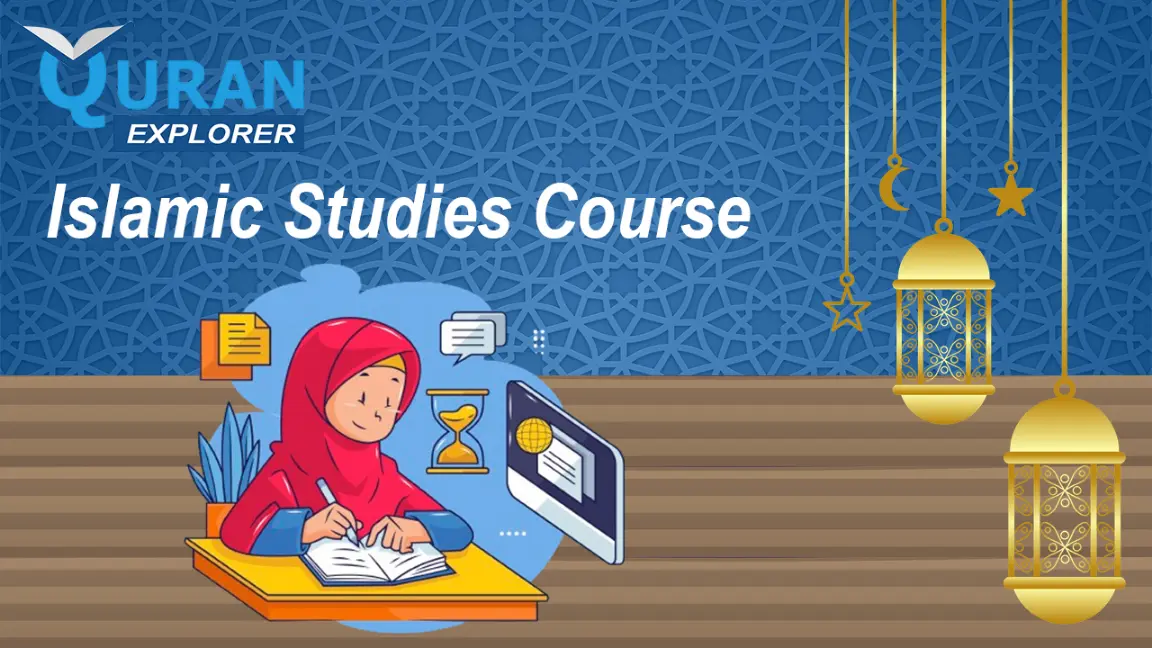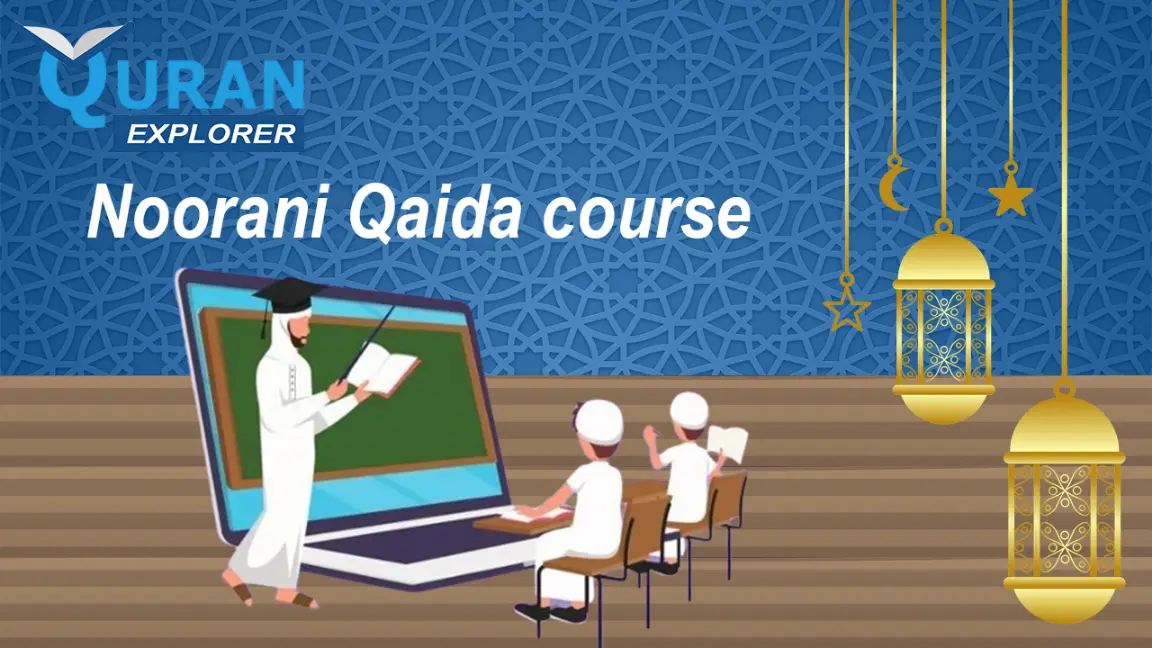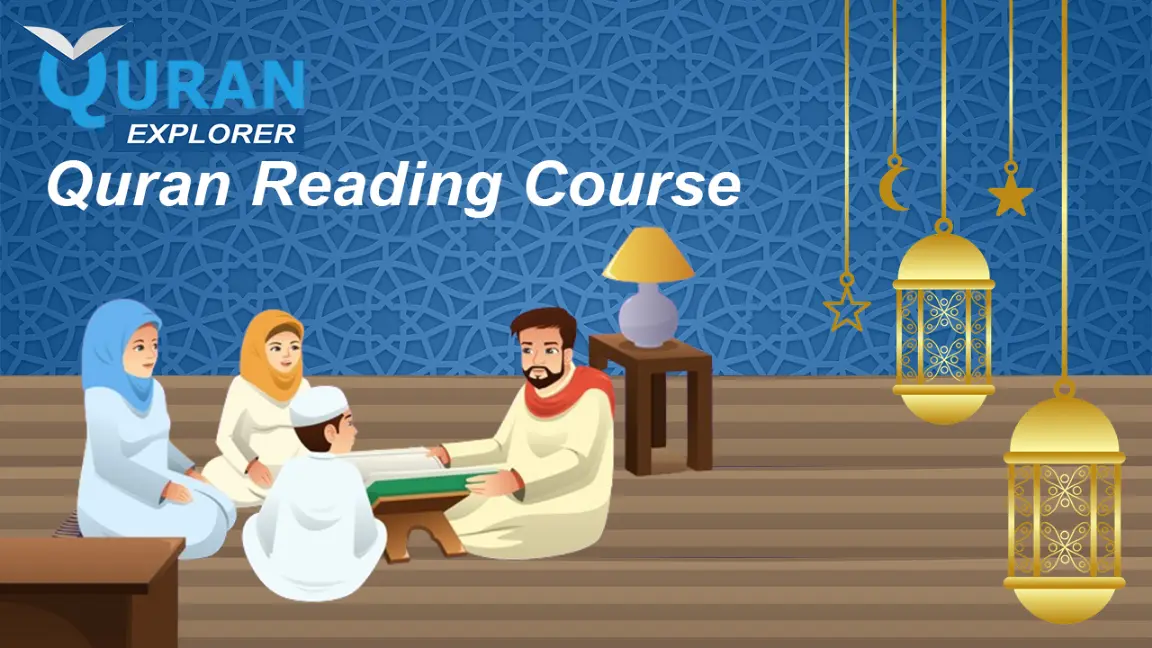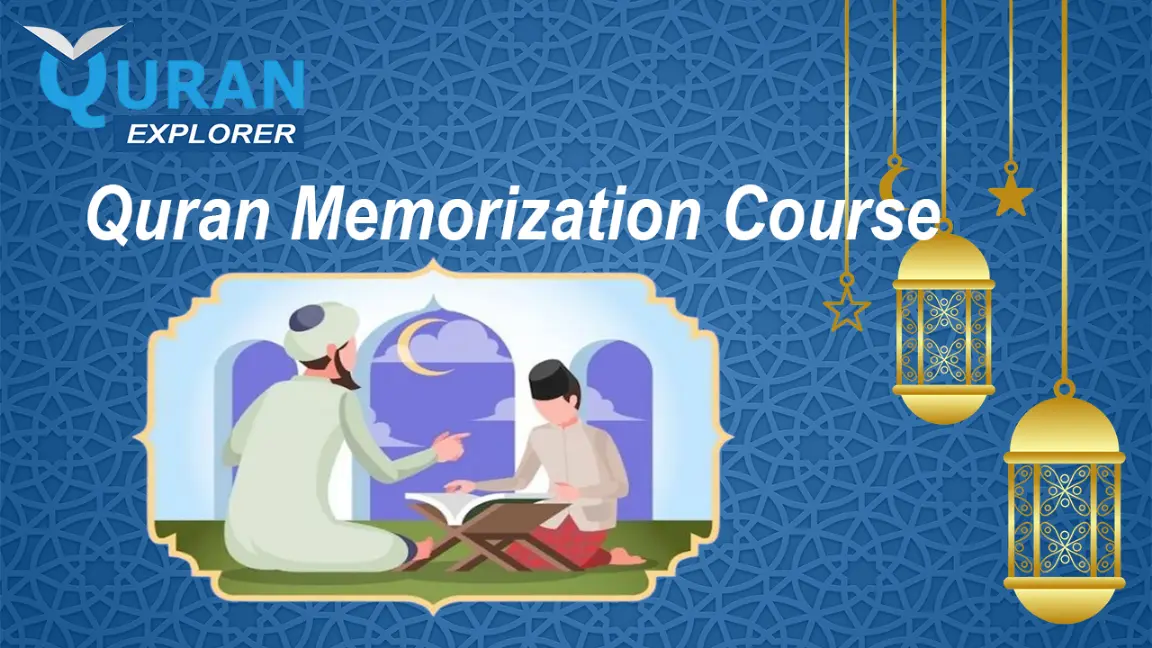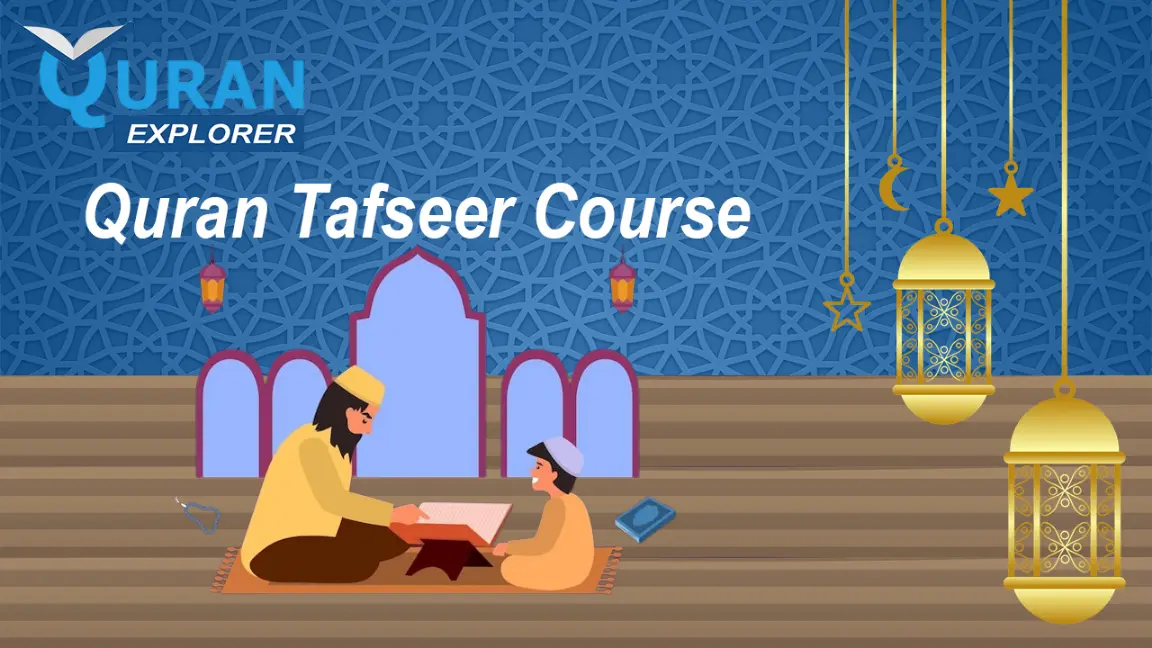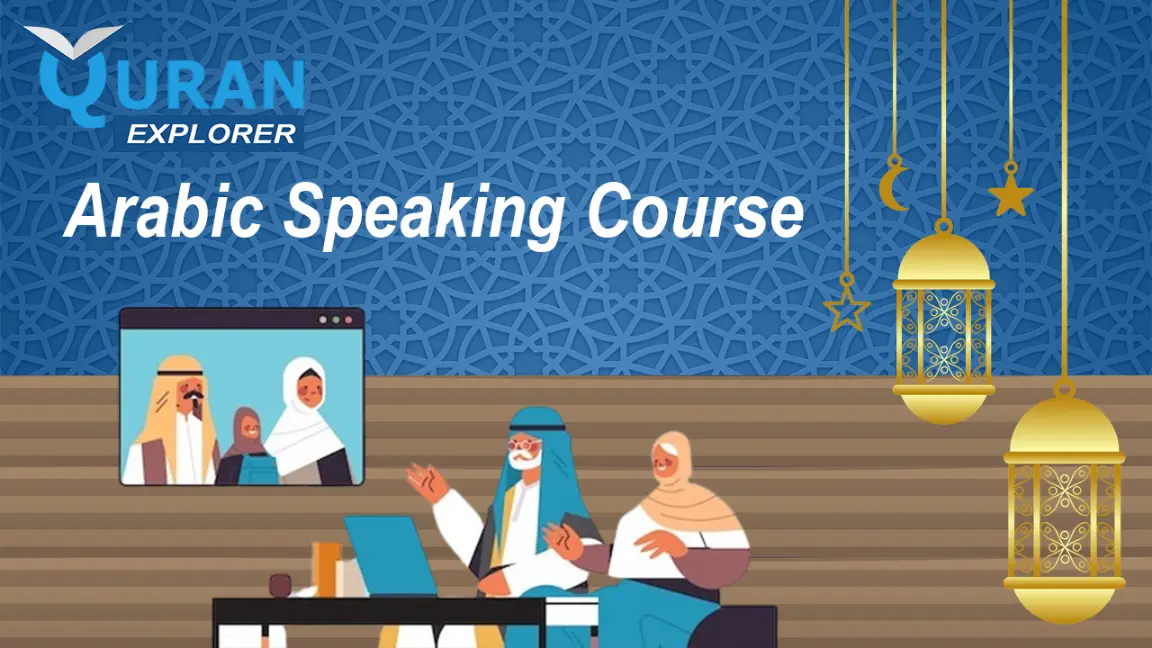Welcome to the Islamic Studies Course provided by using Quran Explorer Academy, a complete application meticulously designed for the ones searching for an in-depth understanding of Islam, its foundational teachings, and practices. Islam, a monotheistic religion that appeared through its followers as God’s last revelation, emphasizes submission to the divine will. Its name, derived from the Arabic phrase for peace, displays the harmony and fulfilment discovered in a lifestyle devoted to God’s career.
The ancient roots of Islam trace back to 7th century Arabia, in which Prophet Muhammad received revelations that would eventually comprise the Quran, Islam’s sacred scripture. These revelations laid the basis for a rich, non-secular highbrow.
Central to the Islamic religion are the Five Pillars: Shahada (the declaration of faith), Salah (prayer), Zakat (almsgiving), Sawm (fasting all through Ramadan), and Hajj (pilgrimage to Mecca). These pillars frame the life of Muslims and deal mainly with the duties & responsibilities of the community.
Hadith Studies
This section of the Islamic Studies Course delves deeply into the Hadith, which encompasses the sayings & actions of Prophet Muhammad. As the Quran’s 2d source in Islamic jurisprudence, the Hadith is pivotal for grasping the Islamic manner of lifestyles.
Understanding the Definition & Importance of Hadith
Definition and Importance of Hadith
In this unit, students will learn about the definition of Hadith and its importance in Islam. The Hadith now does not give the best context and elaboration for the Quranic text. Additionally, it serves as a sensible guide for Muslims on the way to live their lives according to Islamic ideas. Students will discover the linguistic nuances of Hadith & how its teachings supplement & complement the Quranic revelations.
Exploring Compilation and Classification
Compilation and Classification of Hadith
The Islamic Studies Course students will discover the historical procedure behind compiling and categorizing Hadith. They explore the techniques students employ to distinguish between biased & correct evaluations, guaranteeing the authenticity of hadith compilations. This unit will cover the roles of Hadith compilers, which include Imam Bukhari and Imam Muslim, in addition to the criteria they employed to authenticate narrations.
Discovering Major Collections
Major Collections of Hadith
This part of the route will explore the predominant collections of Hadith, often known as the Six Canonical Books, including works by pupils, including Sahih Bukhari and Sahih Muslim. Students will benefit from insights into the significance of these collections & the role they play in the Islamic way of life. They will also look at lesser-regarded compilations and apprehend the ancient contexts in which somebody had assembled. These collections had assembled.
Authenticity and Criticism of Hadith
An exam of the strategies Islamic students utilize to evaluate the authenticity of Hadith, which includes looking at the isnad (chain of transmission) and primary (the textual content of the Hadith), may be protected. The complexity of hadith analysis will be explored in this course, along with particular viewpoints from academic subcultures & discussions of definiteness. Students will broaden nuanced information of the complexities involved in determining the reliability of Hadith.
Application of Hadith in Daily Life
Finally, this phase emphasizes the realistic utility of Hadith in each day’s existence. Students will discover how the lessons embedded in the Hadith affect a Muslim’s everyday moves, from personal practices to moral behaviour within the network. They will find actual-life situations and speak about how Hadith gives steerage on issues ranging from personal hygiene to interpersonal relationships. Through case research & discussions, students will deepen their appreciation of the relevance of Hadith in shaping Islamic ethics & morality.
Fiqh (Islamic Jurisprudence): Understanding the Application of Sharia Law
The Islamic jurisprudence, Fiqh, represents the human expertise and application of the Sharia, or Islamic regulation. It encompasses a look at and interpretation of the Quran, Hadith, & the rulings of Islamic scholars to guide Muslims in their non-public, social, and religious lives.
Introduction to Fiqh
In this segment, college students are introduced to the idea of Fiqh and its pivotal position in Islam. They will discover how Fiqh guides the moral. Through attractive discussions and case research, college students gain a basic understanding of the way Fiqh shapes Muslim lifestyles.
Exploring Schools of Islamic Jurisprudence
Students will delve into the four primary schools of Islamic jurisprudence – Hanafi, Maliki, Shafi’i, and Hanbali.
Through comparative evaluation, they may observe the variations and similarities among those colleges, their ancient improvement, and their geographical distribution. This unit intends to deepen students’ expertise of the numerous criminal traditions within Islam & their effect on the Islamic prison concept.
Understanding Sources of Islamic Law
This unit outlines the number one and secondary sources of Islamic regulation. Students will explore how the Quran and Sunnah inspire Fiqh, whilst Ijma (consensus among scholars) and Qiyas (analogical reasoning) play tremendous roles in deriving rulings for present-day issues.
Students gain insight into the dynamic nature of Islamic prison interpretation through engaging lectures & discussions.
Practical Applications of Fiqh
Students will discover the realistic relevance of Fiqh in everyday existence through examples of its utility in worship (ibadah) and transactions. They will find how Fiqh’s course practices consist of prayer, fasting, pilgrimage, and moral conduct in business contracts and marriage.
Through case studies and simulations, college students increase sensible abilities in applying Fiqh standards to actual-existence eventualities.
Contemporary Issues in Fiqh: Snapping Up Modern Problems in Islamic Ethics
In this final unit, students discover how Fiqh addresses modern traumatic situations confronted through the Muslim network. Topics include modern financial transactions, bioethical dilemmas, & navigating non-secular exercise in non-Muslim environments.
Through vital evaluation & dialogue, students understand Fiqh’s adaptability and relevance in addressing complicated issues in the brand-new society.
Assessing Islamic Civilization
This complete segment explores the wealthy tapestry of Islamic history & the profound contributions of Islamic civilization to the arena.
Early Islamic History: Rise of Islam and the Caliphates
Rise of Islam and the Caliphates: Examining the Foundations and Expansion of Islamic Empire Students delve into the origins of Islam in the Arabian Peninsula, exploring the lifestyles and teachings of Prophet Muhammad & the elaboration of Islam under the Rightly Guided Caliphs and subsequent dynasties. They look at the stipulation quo of the Islamic gather and its administrative, cultural, and learning improvements.
Islamic Contributions to Science, Medicine, and Philosophy: Exploring the Golden Age of Islamic Scholarship
The considerable contributions Islam has made to fields such as astronomy, mathematics, and philosophy highlight the age of metal in Islam.
Students study famous scholars, including Al-Kindi, Ibn Sina, and Al-Razi, & how their paintings laid the European Renaissance principles.
Islamic Art and Architecture: Unveiling the Aesthetic and Spiritual Significance
Students explore the aesthetic accomplishments of Islamic civilization, analyzing the one-of-a-kind characteristics of Islamic art and structure, including calligraphy, tilework, & mosque layout. Spread of Islam: Conquests and Trade Routes
Spread of Islam: Conquests and Trade Routes: Mapping the Expansion and Cultural Exchange of the Islamic World
This segment tracks the growth of Islam paIslame Arabian Peninsula through navy conquests and flourishing trade routes. Students study how Islam’s spread stimulaIslamnd ended, prompted by several cultures, mainly richly interconnected Islamic international.
Preservation of Islamic Heritage
Students explore tasks geared toward preserving and comprehending Islamic history in current instances. Topics encompass the refurbishment of ancient websites, the digitalization of ancient manuscripts, & the significance of safeguarding Islamic cultural heritage amidst worldwide demanding situations & adjustments.
With captivating lectures, interactive discussions, & hands-on activities, students embark on an enriching journey to enhance their understanding of the extensive knowledge, jurisprudence, & civilization of Islam.
Islamic Ethics and Morality: A Foundational Pillar
Islamic ethics and morality stand at the centre of Muslim life, weaving through the fabric of daily actions, choices, and interactions with the Creator and Advent.
The most vital aspect of the Islamic religion is its emphasis on a complete manner of dwelling in step with the standards of Almighty God, which allows believers to achieve moral excellence.
By exploring fundamental principles and their realistic applications, this segment illuminates the path for Muslims to encompass their religion in each thing of life, ensuring a balance between personal integrity & societal harmony.
Early Islamic History
Rise of Islam and the Caliphates: Examining the Foundations and Expansion of Islamic Empire Students delve into the origins of Islam in the Arabian Peninsula, exploring the lifestyles and teachings of Prophet Muhammad & the elaboration of Islam under the Rightly Guided Caliphs and subsequent dynasties.
They look at the stipulation quo of the Islamic gather and its administrative, cultural, and learning improvements.
Islamic Contributions to Science, Medicine, and Philosophy
The considerable contributions Islam has made to fields such as astronomy, mathematics, and philosophy highlight the age of metal in Islam.
Students study famous scholars, including Al-Kindi, Ibn Sina, and Al-Razi, & how their paintings laid the European Renaissance principles.
Islamic Art & Architecture
Islamic Art and Architecture: Unveiling the Aesthetic and Spiritual Significance
Students explore the aesthetic accomplishments of Islamic civilization, analyzing the one-of-a-kind characteristics of Islamic art and structure, including calligraphy, tilework, & mosque layout. Spread of Islam: Conquests and Trade Routes
Spread of Islam: Conquests and Trade Routes: Mapping the Expansion and Cultural Exchange of the Islamic World
This segment tracks the growth of Islam paIslame Arabian Peninsula through navy conquests and flourishing trade routes. Students study how Islam’s spread stimulaIslamnd ended, prompted by several cultures, mainly richly interconnected Islamic international.
Preservation of Islamic Heritage
Students explore tasks geared toward preserving and comprehending Islamic history in current instances. Topics encompass the refurbishment of ancient websites, the digitalization of ancient manuscripts, & the significance of safeguarding Islamic cultural heritage amidst worldwide demanding situations & adjustments.
With captivating lectures, interactive discussions, & hands-on activities, students embark on an enriching journey to enhance their understanding of the extensive knowledge, jurisprudence, & civilization of Islam.
The Essence of Tawheed (Oneness of God) and Its Ethical Implications
At the coronary heart of Islamic theology lies the idea of Tawheed, the Oneness of God. This fundamental notion isn’t merely a theological precept but a transformative pressure that shapes a Muslim’s worldview, ethics, & conduct.
Acknowledging Allah as the sole creator and ruler of the universe instils in believers a profound feeling of responsibility, humility,&care toward others and the surroundings. This section shows how the popularity of divine individualism impacts religious practice, selling life by the will of God.
Character Building: The Islamic Path to Virtue
The most crucial aspect of the Islamic faith is its emphasis on a complete manner of living consistent with the requirements of Almighty God, which allows believers to acquire ethical excellence. Character constructing is considered a critical act of worship, pivotal in nurturing private boom and social brotherly love.
This section inspects how Islamic teachings revolutionized the lives of men and women and provides that actual truth depends on every faith & proper conduct. How do they embody the spirit of Islamic teachings in their daily lives and contribute positively to their groups? Ethical Business and Social Practices: An Islamic Perspective
Islamic ethics are more significant to all spheres of life, with commercial enterprise and social interactions. This part of the course covers the comprehensive Islamic guidelines governing transactions, communications, & relationships, advocating for ideas of equity, integrity, & justice.
By adhering to these ethical directives, Muslims construct beliefs and concord within society, ensuring that their dealings are transparent, equitable, & reflective of their commitment to moral uprightness.
Gender Equity and Social Justice: Islam’s Balanced Approach
Contrary to unusual misconceptions, Islam has continuously encouraged the rights and dignity of all people, promoting gender fairness and social justice. This unit addresses the Islamic position on these fundamental issues, examining the concept of egalitarianism embedded in Islamic teachings.
Discussions will revolve around the role of girls in Islam, the importance of social welfare, & the collective obligation of Muslims to assignment oppression and inequality, highlighting Islam’s technique to fostering a simple and equitable society.
Practical Virtues & Avoidance of Vices in Daily Life
Islamic teachings offer a wealth of steering on embracing virtues & averting vices, emphasizing their importance in personal improvement and societal welfare.
This route phase provides realistic advice on incorporating virtues, including generosity and persistence, into daily day-to-day existence while steering clear of negative behaviours like greed & envy. By adopting those concepts, Muslims try to decorate their lives & contribute to the sector around them.
Navigating Contemporary Challenges through Islamic Lens
The dynamic nature of contemporary society affords specific challenges that require considerate engagement with Islamic standards. This phase of the path explores pressing troubles alongside environmental stewardship and monetary fairness; through cautious evaluation and discussion, college students will gain insights into how Islamic teachings manual believers in confronting & resolving present-day international demanding situations.
Embark on exploring the principles governing Islamic finance and banking in this all-encompassing unit.
The spot is at the ban of challenge rib and the development of proper investments. Delve into the growing Islamic financial establishments, their adhesion to Islamic laws, and the notification of practicable alternatives to formal fiscal structures.
Islamophobia & its global impact
Uncover the growing phenomenon of Islamophobia, exploring its origins & more profound consequences in Muslim communities around the world.
It explored in-depth topics related to strategies to combat misinformation & stereotypes and established practices that established the support of Muslims and their allies to replace knowledge & reward communication in a population. To get deeper insight, we completed a family on Islamic Studies.
H3: The Role of Women in Islamic Society H. Three Embark on exploring the Islamic Studies Course that specializes in girls’ roles, rights, & contributions inside Islamic society.
This intact goal is to scatter regular myths and shed descend at the excited booking of Muslim girls in traditionally shaping their groups, as handspring as their synchrony roles. Module 3: Integration of Muslims in Non-Muslim Societies H.
Discuss the challenges and possibilities Muslims face in non-Muslim societies. This workforce addresses problems of ethnic integration, non-secular freedom, and identification,’ presenting views on how Muslims should hold their non-secular ideas and actively contribute to broader society.
Islamic Responses to Modern Challenges
Three Conclude your experience with a centre on how Islam addreIslamand presents answers to synchrony troubles such as clime trade and rounded poverty and industrial improvements.
Witness Islam’s adaIslam’sty and the active reason Muslims advocate for justice, peace, and sustainability in our ever-evolving international community.
Islamic Systems: Economics, Politics, and Society
Understanding the Islamic way of existence extends beyond non-public ethics and morality to encompass the structures that govern collective human hobbies.
This final segment presents an in-intensity observation of Islamic economics, political structures, & Social interactions, showcasing how the ones structures are rooted in concepts of justice, welfare, & cooperation through lectures, students will learn the foundational structures of Islamic structures & apprehend how Islam envisions Islam as a balanced & harmonious society.
Economic System in Islam
Foundations of the Islamic Economic System
Delve into an overview of the guiding principles that corroborate the economic transcription in Islam. EmphIslamwas placed on justice, equity,’ and the open ban on exploitation, providing a foundational understanding of Islamic economic values.
Wealth Distribution in Islamic Economics
Explore the unequalled Islamic view on riches distribution, incorporating concepts such as Skat and Sadaqah.
Islamic Perspective on Reeba Usury
Engage in an important exam of the Islamic ban on rib usury and its far-reaching implications in modern-day fiscal transactions. Delve into the progress of risk sharing finished interest-free banking, shedding descend on Islamic economic principles aligned with right and just budgetary practices.
Political System in Islam
Foundations of the Islamic Political System
Initiate your exploration into the disposal feign endorsed by Islam, withIslamot on fundamental principles much as audience Shara and justice. Learn the guiding ideas that formed the foundation of the Islamic ethnic device.
Islamic Concept of Sovereignty
Enter a lost word on the conception of dominate in Islamic policy-making thought, exploring its unequalled view and implications for lawmakers processes.
Institutions of Government in Islam
Analyze the base institutions inside an Islamic government, dissecting the roles of the Caliphate and the discriminatory system. They studied how these organizations supported the execution of Islamic law through magistrate & disposal, promoting a more profound comprehension of policy-making within the Islamic framework.
Social System in Islam
Foundations of the Islamic Social System
Receive an overview of the Islamic ethnic framework, emphasizing the predominant grandness of heretical welfare, ethnic justice, and interactive responsibilities among individuals. Learn about the ideas that stimulated the essential design of the Islamic ethnic device.
Family Dynamics in Islam
Delve into an exam of the category structure and the foundational intact of Islamic society.
Explore aspects such as marriage, the upbringing of children, & sexuality roles, as well as understand how these convey the frame of Islamic ethnic life.
Ethical Values in Islam
Engage in a lost word on the correct values upheld in Islam in Islam: honesty,’ compassion, and interactive respect. Uncovered how these values corroborate the ethnic system,’ guiding interactions inside the heretical and fostering a self-sealing ethnic fabric.
The Islamic Studies family hopes to offer college students a better understanding of how Islam causes criminal, political, & Financial troubles to improve people’s lives and self-government globally by exploring this subject notably.
Introduction to Islamic Law & Jurisprudence
The Islamic Studies Course delves into the dirty read hang of Islamic Law and Jurisprudence and unveils the compound neighborhood of Sharia’s Islamic law and Fish Islamic jurisprudence. This critical section unfolds through lead-enlightening lectures meticulously crafted to enrich the inclusion of Islamic felonious and right frameworks.
These lectures elucidated the antediluvian development of those frameworks & their synchrony relevance. This tatter introduces the foundational principles of Islamic Law and Jurisprudence, distinguishing between Sharia’ah, the lord regulation, & the man noeses and vigilance of that regulation.
It examines how those criminal suggestions in recent times manipulate not just the most holy ceremonies but additionally each part of a Muslim’s lifestyle, highlighting how unreliable Islamic regulation is. This article examines how Islamic law has evolved. Emphasizing the energizing unreliable of Islamic jurisprudence,’ it highlights how it developed over the eld in response to converting social necessary whilst maximal anchored inside the base resources of Islamic law.
This tatter delves into the base sources of Islamic law, specifically the Qur’an and Shannah, unitedly with utility resources tending Irma consensus and Bias analogical reasoning. It elaborates on the methodologies scholars hired to counsel & suggests those sources to synchrony troubles, ensuring the adaptive unreliable of Islamic jurisprudence.
Centring on constitutional change in interior Islamic jurisprudence, this leg examines the motives at the cover of single interpretations and rulings amongst pupils. It discusses how these variations attested to the ability and adaptableness of Islamic regulation & catering to the single necessity of communities.
The Islamic Studies family hopes to offer college students a better understanding of how Islam causes criminal, political, & Financial troubles to improve people’s lives and self-government globally by exploring this subject notably.
The Islamic Studies Course provides a profound exploration into the life of the Holy Prophet Muhammad (S.A.W) via three insightful lectures, aiming to offer complete expertise in his life & the worthwhile lessons derived from his experiences in both Makkah & Madina.
Life of Muhammad Bin Abdullah (Before Prophethood)
This lecture serves as a creation of the early years of Muhammad Bin Abdullah, delving into his lineage, start, and childhood in Makkah earlier than he assumed the function of a prophet.
It sheds light on his traits, early reviews, & Makkah’s socio-economic situations that played a pivotal role in shaping his childhood. Insights into these foundations offer a glimpse into the instruction that ultimately led him to become the Messenger of Allah (S.A.W).
Life of Holy Prophet (S.A.W) in Makkah
Venturing into the preliminary thirteen years of his Prophethood in Makkah, this lecture explores the demanding situations and opposition faced by the Holy Prophet (S.A.W) while conveying the message of Islam. EsseIslam occasions are highlighted, including the first revelation, the general public statement of his Prophethood, and the subsequent persecution of early Muslims.
Important Lessons Derived from the Life of the Holy Prophet in Makkah
Reflecting on the Makkah duration, this lecture distils crucial instructions from the steadfastness and endurance exhibited using the Holy Prophet (S.A.W). It emphasizes the techniques employed in preaching in hostile situations, the importance of moral integrity, & the reliance on divine guidance towards adversity.
Life of Holy Prophet (S.A.W) in Madina
Following the migration to Madina, this lecture chronicles the established order of the Islamic state and society. It covers sizable events such as drafting the Constitution of Madina, the battles fought, the treaties negotiated, & the established order of laws. The lecture provides insight into the governance & management styles of the Holy Prophet (S.A.W.) during this crucial period.
Important Events of the Life of the Holy Prophet in Madina
This component focuses on elaborating the foremost occurrences during the Madinan duration, which include the battles of Badr, Uhud, and the Conquest of Makkah. It explores how those events formed the Islamic network & increased the impact, implying complete know-how of the transformative moments at some point of this massive phase inside the life of the Holy Prophet.
Important Lessons Derived from the Life of the Holy Prophet in Madina
The final lecture in this collection examines the key takeaways from the Madinan duration of the Holy Prophet’s (S.A.W) lifestyles. It highlights classes on network construction, justice, forgiveness, & the strategic factors of managing a hastily developing Islamic country.
Introduction to Sunnah – Two Lectures
The in-intensity look at the Sunnah, the manner of existence and teachings of the Prophet Muhammad (S.A.W), is essential for expertise in Islam. ThisIslament consists of a couple of shows designed to impart to students a fundamental know-how of Sunnah, delving into its importance, the technique of its compilation,
Basic Concepts of Hadith
This lecture introduces the idea of Hadith, the recorded sayings, moves, and approvals of the Prophet Muhammad (S.A.W). It talks about the standards for Hadith authenticity. By distinguishing many of the various classes of Hadith, together with Saheeh proper, inclined, & fabricated, students appreciate the meticulous method involved in Hadith authentication.
History of Hadith Compilation
Tracing the historic path of Hadith compilation, this lecture outlines the evolution from oral traditions to written collections. It elaborates on the enormous works of students, Imam Bukhari, Imam Muslims, & others who devoted their lives to accumulating and verifying Hadiths. This historical perspective affords college students a more profound know-how of the rigour & determination behind keeping the Sunnah.
Three Kinds of Hadith
Exploring the class of Hadith, this lecture dives into the differing types based totally on transmission chains (Isnad), text (Matn), and authenticity. It also examines diverse paperwork, consisting of Mutawatir (mass-transmitted) & Ahad (singularly narrated), & their implications in Islamic jurisprudence.
Uloom-ul-Hadith (Sciences of Hadith)
This is a part of the series of information that looks at a loom-ul-Hadith, or the Sciences of Hadith, which encompasses the methodology utilized in evaluating the strength of Hadiths, consisting of the look-ats and their credibility. It highlights how crucial these numbers are to understanding the situation.
Legal Position of Sunnah
Addressing the importance of the Sunnah inside Islamic regulation, this lecture discusses how the Sunnah complements the Quran and serves as a secondary supply of law. It explores examples of how the Sunnah presents clarification & extra info for the commandments in the Quran.
Selected Studies of Text of Hadith
Focusing on sensible application, this lecture carefully examines selected Hadith. Students will analyze their meanings, contexts, & implications on Muslim life and ethics. This fingers-on method helps bridge the distance among theoretical knowledge.
spirituality. The kinds of Salat, which include obligatory and voluntary prayers, are mentioned alongside the blessings they carry, consisting of peace of mind and closeness to Allah.
Saum (Fasting)
This consultation dives into Saum, fasting at some stage in Ramadan. We examine its means, definition, & importance located on it through Islamic teachings. The objectives of Saum, which include self-purification and self-restraint, are mentioned. Different varieties of fasting, consisting of compulsory and voluntary fasts, and the benefits of fasting, including developing empathy for the much less lucky, are also blanketed.
Zakat (Almsgiving)
Zakat, or charitable giving, is the focal point of this lecture. We talk about its meaning, definition, & importance as one of the Five Pillars of Islam. The targets of Zakat, together with the purification of wealth and assistance to the ones in want, are explained. We also cover the quantum of Zakat that needs to be given & the advantages of Zakat, including fostering an experience of network and reducing financial disparity.
Hajj (Pilgrimage)
In this lecture, we explore the Hajj, the pilgrimage to Mecca required of all capable-bodied Muslims once in their lifetime. The meaning, definition, & importance of Hajj in Islam are discussed, along with its targets, including demonstrating cohesion among Muslims internationally. We look at the varieties of Hajj and the blessings this pilgrimage offers, which include non-secular renewal & forgiveness of sins.
Jihad (Struggle within the way of Allah)
Jihad, often misunderstood, is the focus of this lecture. We look at its actual meaning & definition within Islam, emphasizing its significance as a form of striving in the way of Allah. The objectives of Jihad, such as the defence of the Islamic faith and the betterment of society, are mentioned. Various forms of Jihad, which include the non-public struggle towards sin, and the advantages of accomplishing Jihad, which provides for the protection of Islamic values, are also blanketed.
Advantages of Our Teaching Approach
In our comprehensive Islamic research application, we are proud to offer numerous key advantages that cater to the various desires & schedules of our students. One of the greatest blessings is the provision of male and female tutors. This desire guarantees that college students find a relaxing & conducive getting-to-know environment, regardless of their non-public alternatives or non-secular considerations.
The flexibility of our schedule is an additional key advantage. Understanding the disturbing lives many of our college students lead, whether because of paintings, circle of relatives duties, or other studies, we offer lessons at diverse instances at some point in the day and night. This flexibility allows college students to match their Islamic studies seamlessly into their current schedules even as they no longer have to sacrifice their exceptional commitments.
We also agree with the energy of customized mastering; that’s why we offer one-to-one instructions. This individualized method ensures that every student receives the eye they need, with instructions tailored to their know-how & tempo. It fosters a better scholar-instruct courting, enhancing the learning experience & permitting more excellent dynamic and interactive sessions.
To make our application handy to anybody, we offer free trial instructions. These no-obligation periods supply potential students a flavour of our training style, the content material of our courses, and our scheduling capacity.
Lastly, our group of multilingual teachers guarantees that language limitations do now not avert absolutely everyone’s pursuit of Islamic know-how. With tutors specializing in monolinguals, students can’t be taught in the term, making their learning as intense and productive as possible.
These advantages are split by our dedication to providing a high-quality, accessible, & conciliatory Islamic pedagogy that meets the requirements of Muslims worldwide, irrespective of their fate or background.
Conclusion and Practical Application
this course covered Islam’s top Islamic cultural, ethical, and contemporary landscapes. This propaganda about Islamic research has yet to illuminate our information fully. Still, it has additionally revealed how deeply the cartel influences domains, from benevolent gender-based totally production to round-stacked challenge.
Recap of Key Concepts and Learning
In our Islamic Studies Course, we delved into he origins & diffusion of Islam, obseIslam, and its touch on single civilizations.
The accent on preserving Islamic inheritance highlighted the import of past connections. Additionally, the exemplary example established by Islamic teachings offered insights into leading an honourable & clean-handed life.
Examining present-day problems, we explored how Islam dynamIslamy tackles modern-day social challenges.
Practical Tips for Applying Islamic Studies in Daily Life To integrate the teachings from the Islamic Studies Course into your day-to-day life, get by contemplating the correct principles covered and their work on your choices and engagements. Connect with the community, persevere, and finish volunteered efforts to apply concepts of ethnic magistrate and philanthropy.
You have continuously pursued learning, encompassing spiritual teachings and physical knowledge, to heighten your inclusion & insight.
Resources for Further Learning and Development
To similarly your Islamic Studies Course, there are considerable resources at your disposal. Explore online courses, scholarly articles, & books overlaying numerous aspects of Islam for profound insights. Engaging in seminars and lectures led with the aid of esteemed Islamic pupils can enhance both your comprehension and implementation of Islamic principles.Engaging in seminars and lectures led by esteemed Islamic scholars could heighten some of your inclusion and execution of Islamic principles.
Importance of Continued Growth in Islamic Knowledge
Continuing training within the Islamic Studies Course is vital, not best for non-public improvement but additionally for creating a nice contribution to the network. Enhancing our understanding helps combat misunderstandings about Islam, fosters interfaith solidarity, and strengthens our faith & moral principles.H. 3 Final Reflections and Closing Remarks As the Islamic Studies Course ends, uninjured in hearing that the trip continues beyond.
Islamic Studies Course is as immense as the ocean, offering uninterrupted chances for exploration & contemplation. Let this family descend your class towards an earnest life, drawing aspiration from the profound teachings of Islam.
You were using knowledge, implementing what you had learned, & aiming for a natural brace that positively impacted you and yourself.

